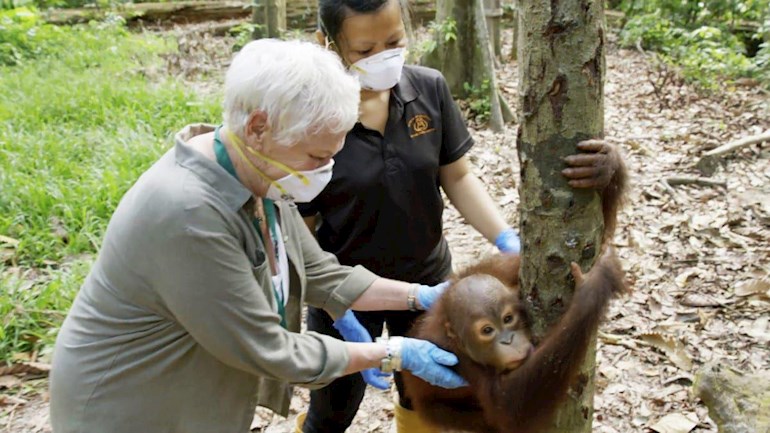Judy Dench having just been in Borneo with orangutans, this paper simply could not pass unmentioned.
J Zoo Wildl Med. 2019 Jun 13;50(2):461-465. doi: 10.1638/2018-0041.
CONGENITAL HYPOTHYROIDISM IN A BORNEAN ORANGUTAN (PONGO PYGMAEUS) AND A SUMATRAN ORANGUTAN (PONGO ABELII).
Fayette MA1, Tocidlowski ME2, Brown BP3, Trautman MS3, Bowman MR4.
Author information
1 Indianapolis Zoo, Indianapolis, IN 46222, USA, mfayette@indyzoo.com.
2 Houston Zoo, Houston, TX 77030, USA.
3 Riley Hospital for Children at Indiana University Health, Indianapolis, IN 46202, USA.
4 Indianapolis Zoo, Indianapolis, IN 46222, USA.
Abstract
Congenital hypothyroidism (CH) in humans is most commonly caused by disruption of thyroid gland development (dysgenesis) or an inherited defect in thyroid hormone biosynthesis (dyshormonogenesis). CH has not been previously documented in great apes. This report describes the clinical presentation, diagnosis, and treatment of CH in a 9-mo-old male Bornean orangutan (Pongo pygmaeus) and a 6-wk-old female Sumatran orangutan (Pongo abelii). Primary CH due to thyroid dysgenesis was confirmed in the Bornean orangutan using sonography and radioisotope scintigraphy. Although commercial thyroid immunoassays are not validated for use in orangutans, in comparison to age-matched controls, thyroid-stimulating hormone level was markedly elevated, and serum thyroxine (T4) and free T4 levels were markedly decreased in both cases. Oral supplementation with levothyroxine sodium resulted in noticeable clinical improvement in both orangutans within 30 days of initiating treatment.
Copyright 2019 by American Association of Zoo Veterinarians.
KEYWORDS:
Congenital; Pongo abelii; Pongo pygmaeus; endocrinopathy; hypothyroidism; orangutan
PMID: 31260215
DOI: 10.1638/2018-0041
